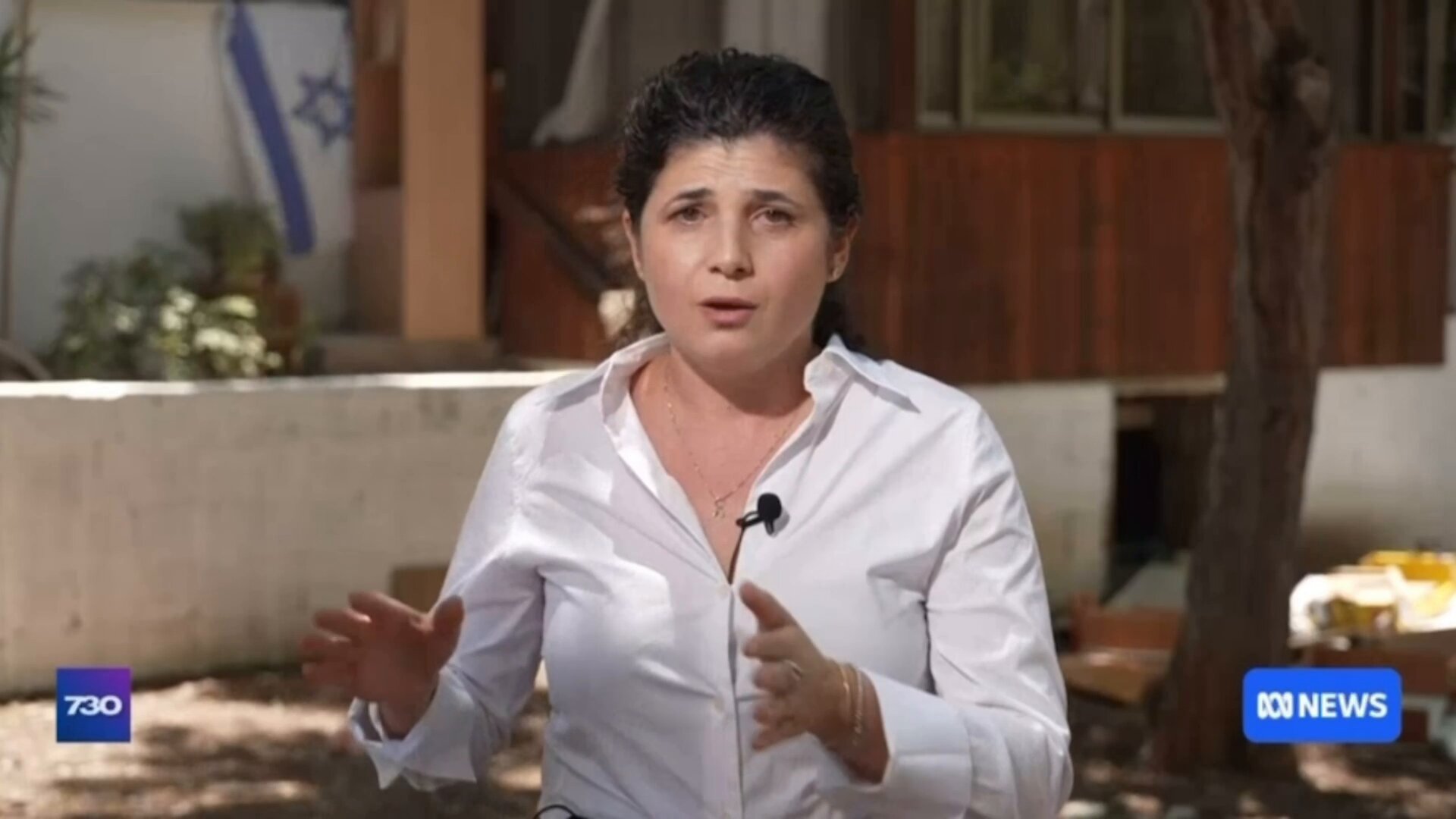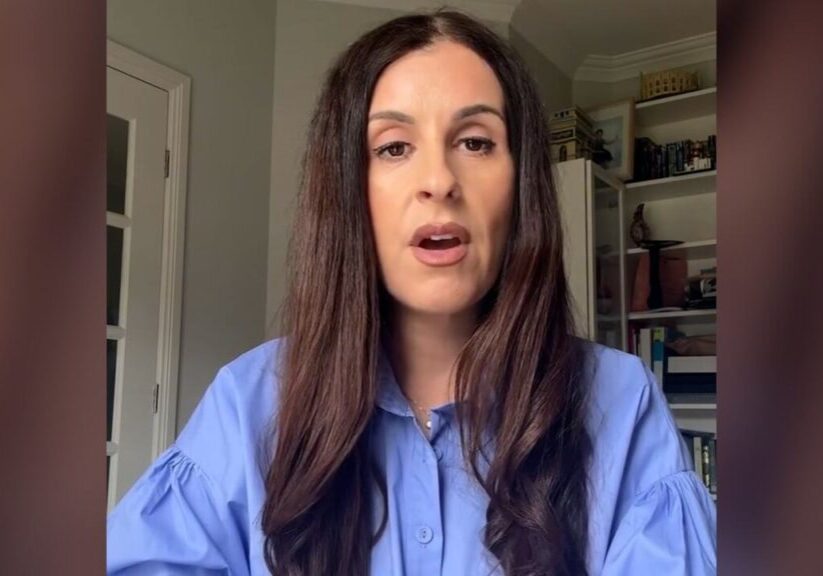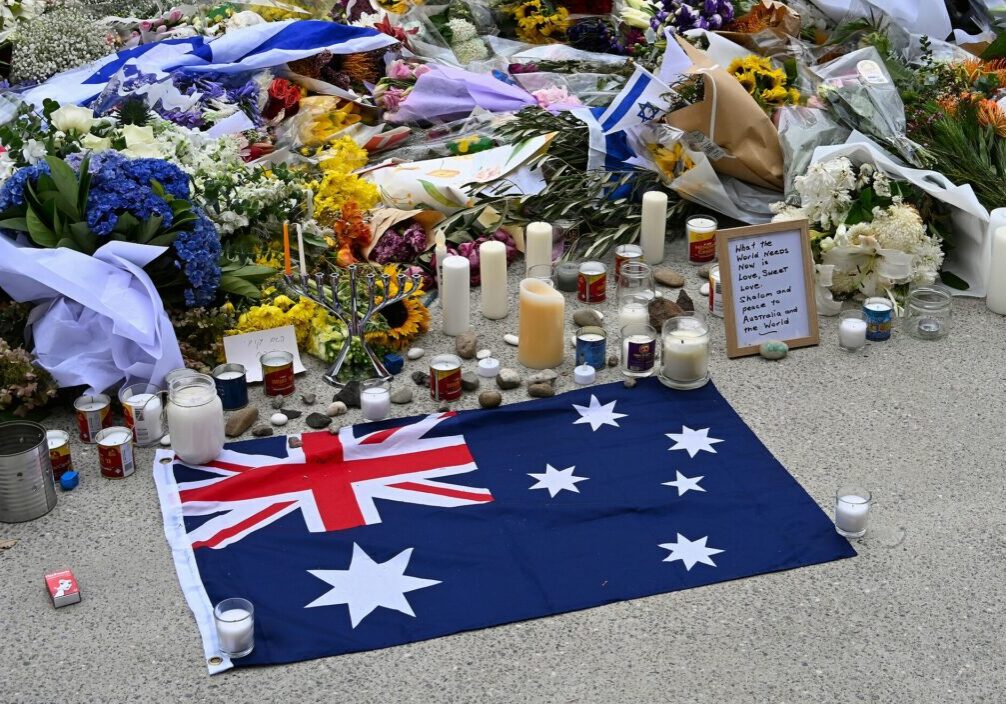Australia/Israel Review
Media Matters: Starved for Balance – The ABC’s coverage of Gaza’s famine claims
Sep 19, 2025 | Allon Lee

The intersection of humanitarian aid, the UN and accusations that Israel is creating starvation in Gaza has become one of the most contested narratives in global politics.
In Australia, the ABC has devoted extraordinary coverage to the issue, but too often that coverage has reflected a narrow editorial frame: famine in Gaza is assumed, not questioned.
Claims to the contrary are either minimised or aggressively interrogated.
A typical example of the ABC’s editorial position came on August 15, when Israel’s Deputy Foreign Minister Sharren Haskel appeared on ABC Radio National “Breakfast”.
Haskel sought to highlight perspectives rarely given prominence on the ABC, including the threats Hamas issues against Palestinians cooperating with the Gaza Humanitarian Foundation (GHF).
But she battled to be heard, as “Breakfast” host Sally Sara repeatedly interrupted, haranguing her to admit that famine was already entrenched in Gaza. When Haskel made a claim that “98% of the goods that the UN was handling did not reach the end destination,” Sara pressed for evidence. Haskel cited a UN report that elicited the response by Sara, “report by who? Who wrote that report?”

Israeli MK Sharren Haskel (Screenshot)
After the interview, Sara did tell listeners “according to the latest update from the United Nations Office for the Coordination of Humanitarian Affairs, in July, its World Food Programme collected 1,012 trucks carrying almost 13,000 metric tonnes of food from… crossings in Israel. But only 10 trucks reached warehouses, and the rest were offloaded en route.”
Sara did not elaborate on what that meant. In fact, according to the UN’s own data, 87% of aid was looted between May 2025 and August 2025. In other words, Haskel was essentially correct.
Appearing on “Breakfast” (Aug. 22), AIJAC’s Jamie Hyams had more luck countering accusations that Israel has a deliberate policy of starvation in place. He conceded there was starvation and deprivation in parts of Gaza but explained Hamas caused it by stealing most of the aid. Hyams also pointed out the UN only counts the aid that its agencies bring in and ignores the GHF and various other aid groups.
On Aug. 22, the Integrated Food Security Phase Classification (IPC) issued a report that, for the first time, asserted that parts of Gaza were in famine. That same day, the ABC website ran a wire report explaining the IPC’s criteria: famine requires that 20 percent of the population suffer extreme food shortages, one in three children be acutely malnourished, and at least two in every 10,000 people die daily from hunger or related disease.
What the ABC did not explain was that, in Gaza, the IPC had shifted the goalposts. In previous cases, the threshold for acute malnutrition was 30% of children. In Gaza, the IPC lowered that threshold to 15%. Also, instead of using the standard weight-to-height measures, it relied on mid-upper arm circumference, a less precise metric. And most crucially, it ignored the fact that death rates were nowhere near famine thresholds.
The same day, an infographic on the social media platforms of COGAT – the arm of the Israeli military overseeing aid – explained precisely why the report was flawed:
“In other countries [Somalia and Sudan], the IPC declares famine at 30% malnutrition. In Gaza only, the UN-backed IPC lowered the bar to 15% and it is based on unreliable data. They didn’t find famine – so they forged one.” (See Alana Schetzer’s report in this edition for more on the IPC report’s clear problems).
Yet there is no evidence the report’s major defects were ever seriously covered by the ABC.
On Aug. 23, when ABC Middle East correspondent Matthew Doran reported the story, none of the Israeli criticisms were included. His website piece mentioned COGAT’s rejection of the famine claim but with no explanation of why Israel alleged the report was flawed.
After the weekend break, on Aug. 25, ABC RN “Breakfast” returned to the IPC report, this time with UN Office for the Coordination of Humanitarian Affairs spokesperson Olga Cherevko.
Sara put to Cherevko that “Israel rejects the famine classification as a lie and says that it is allowing in enough aid and is repeatedly accusing Hamas of stealing food from aid trucks. How do you respond to those accusations?”
Cherevko confidently insisted the report was “obviously” based on “scientific data and based on thresholds that have to be crossed to confirm these scenarios and this reality that we have on the ground.”
But she was never pressed on the damning allegations about the death rate or the fact that the IPC had lowered its own thresholds specifically for Gaza.
A week after the report’s release, ABC Radio National’s “Global Roaming” (Aug. 29) only presented experts who would endorse the report. This included an Australian official working for UNRWA in Gaza who admitted she would not recognise a Hamas member.
In fairness, the other free-to-air media outlets were scarcely better. The best was a report on SBS’s website that included a quote buried deep in the text from Israel’s Ambassador to the UN, Danny Danon, accusing the IPC of lowering “its own threshold to manufacture a so-called famine. It cuts the global standard from 30 per cent to 15 per cent for this report only and ignored its second criteria altogether.”
Sky News Australia offered the fairest coverage, including Israeli Special Envoy for Trade and Innovation Fleur Hassan-Nahoum (Aug. 25) explaining that, in March 2024, the IPC made similar claims which subsequently proved false.
Hassan-Nahoum added that the IPC “had to alter their own criteria for famine… to stick Gaza into that category. They’ve actually cooked the numbers in order to be able to do this. And, on top of that, they’ve ignored numbers. We have, at the moment in Gaza, the Gaza Humanitarian Foundation, which has distributed over 150 million meals in the last few months. And those numbers, surprisingly, are not included in the IPC report.”
Long time observers of the ABC will not be surprised – staffers have earned themselves well-deserved reputations for acting as gatekeepers protecting certain orthodoxies from any substantive criticism.
But, in so doing, they have starved ABC readers and listeners of vital facts, context and balance – fundamental building blocks of objective and informed journalism.
Tags: Australia, Gaza, Israel, Media/ Academia, United Nations






